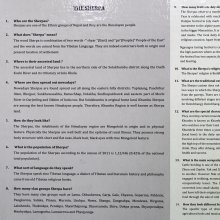Nak: 5 definitions
Introduction:
Nak means something in Hinduism, Sanskrit, Hindi. If you want to know the exact meaning, history, etymology or English translation of this term then check out the descriptions on this page. Add your comment or reference to a book if you want to contribute to this summary article.
Images (photo gallery)
Languages of India and abroad
Sanskrit dictionary
Source: Cologne Digital Sanskrit Dictionaries: Cappeller Sanskrit-English DictionaryNak (नक्).—([nominative]) night.
Source: Cologne Digital Sanskrit Dictionaries: Monier-Williams Sanskrit-English DictionaryNak (नक्):—ind. ([gana] svar-ādi, as nomin, [Ṛg-veda vii, 71, 1]) night.
[Sanskrit to German]
Sanskrit, also spelled संस्कृतम् (saṃskṛtam), is an ancient language of India commonly seen as the grandmother of the Indo-European language family (even English!). Closely allied with Prakrit and Pali, Sanskrit is more exhaustive in both grammar and terms and has the most extensive collection of literature in the world, greatly surpassing its sister-languages Greek and Latin.
Hindi dictionary
Source: DDSA: A practical Hindi-English dictionaryNak in Hindi refers in English to:——an allomorph of [naka] used as the first member in compound words; ~[kata] nose-clipt, noseless, a person whose nose has been chopped off; shameless, brazen-faced; ~[cadha] fastidious, peevish, irate; ~[piccu] snub-nosed; ~[vani] harassing, plaguing..—nak (नक) is alternatively transliterated as Naka.
...
See also (Relevant definitions)
Starts with (+1092): Naak-rakhnu, Nak chhikni, Nak kati lewa, Nak-kati-lewa, Naka, Naka bure, Naka kesar, Naka kora, Naka-bajaunu, Naka-bhanga, Naka-kana, Naka-katnu, Naka-kumarakaviyam, Naka-mapuram, Naka-moticelai, Naka-motiveshti, Naka-patatali, Naka-rahanu, Naka-rakhnu, Naka-talikalli.
Ends with (+51): Achanak, Aka tisip lanak, Akanak, Akar gajah beranak, Akar pontianak, Amanak, Anak, Aprinak, Ashanak, Avrinak, Bachnak, Bachnanak, Bagnak, Bhanak, Bhayanak, Birnak, Bol nak, Bolnak, Bonak, Chenak.
Full-text (+30): Shishna, Jivanash, Syuna, Mina, Sina, Nakasha, Cina, Sthuna, Bol nak, Nak kati lewa, Nak chhikni, Bap-nak-he, Ga-nak, Ghrina, Rasva, Dina, Anaksh, Jina, Nakulandhya, Ina.
Relevant text
Search found 9 books and stories containing Nak; (plurals include: Naks). You can also click to the full overview containing English textual excerpts. Below are direct links for the most relevant articles:
The Matsya Purana (critical study) (by Kushal Kalita)
Part 4.2d - Nakṣatrapuruṣa-vrata < [Chapter 4 - Religious aspects of the Matsyapurāṇa]
Buddhist Education in Thailand (critical study) (by Smitthai Aphiwatamonkul)
6. Roles of Buddhist Universities towards the Thai Society < [Chapter 3 - The Impact of Buddhist Education on Thai Sangha]
2.2. The Buddhist Ordination in Thailand < [Chapter 4 - Role of the Buddhist Education in The Thai Society]
1. Buddhist Monastery in Thailand < [Chapter 4 - Role of the Buddhist Education in The Thai Society]
Rig Veda (translation and commentary) (by H. H. Wilson)
Rig Veda 7.71.1 < [Sukta 71]
The Tamil Academy: A Myth < [November, 1928]
Folk Tradition of Bengal (and Rabindranath Tagore) (by Joydeep Mukherjee)
The Literature of the Ancient Egyptians (by E.A. Wallis Budge)
